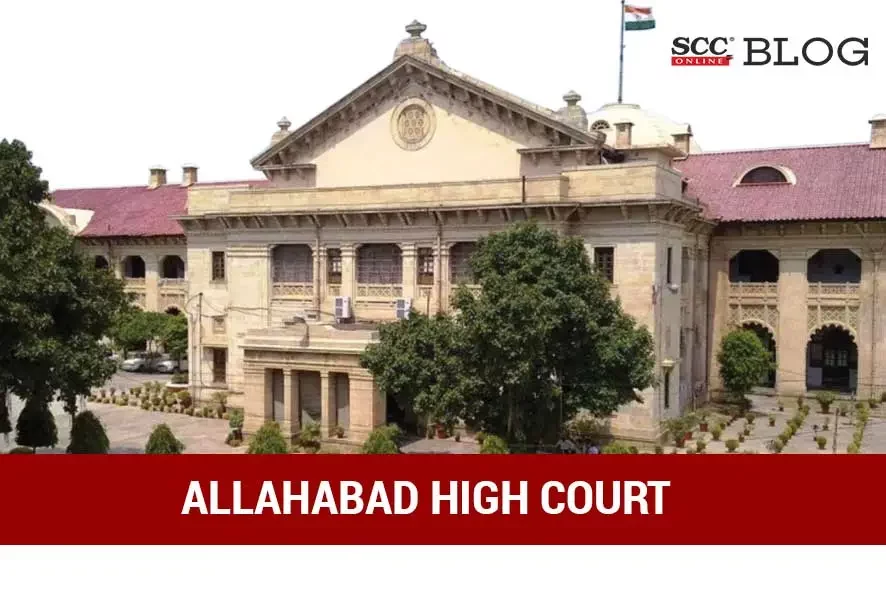Allahabad High Court: In a writ petition filed by the son (‘petitioner’) against the impugned order passed by the District Magistrate, Sultanpur (‘DM’), wherein, while exercising powers under Section 16 of the Maintenance and Welfare of Parents and Senior Citizen Act, 2007 (‘Act, 2007’) the DM directed the petitioner to evict his father’s house, Shree Prakash Singh, J. has said that as the petitioner is living in one room with his wife and he is not making any hindrance in the peaceful living of the parents, in other part of the house and therefore, the objective of the Act, 2007 is no way hampered by the petitioner. Thus, the order passed by the appellate authority, so far as the eviction of the petitioner is concerned, is not sustainable, in the eyes of law. Further, it directed the petitioner to not cause any inconvenience to the needful living of the mother in the house.
In the present case, the parents are the house owners, wherein their son and daughter-in-law are residing in a room and one shop is also in their possession, which is source of their livelihood. It has been alleged that the house in question has been sold on the instigation of the sisters and brothers-in-law of the petitioner, but without going into this factual dispute, it remains undisputed that the petitioner is residing in a room. The father of the petitioner died and only the mother of the petitioner is alive.
The Court took note of the object of the Maintenance and Welfare of Parents and Senior Citizens Act, 2007, (‘Act, 2007’) and said that the object of the Act is to provide for more effective provisions for the maintenance and welfare of parents and the senior citizens as guaranteed and recognized under the Constitution of India. It is for the maintenance of the parents, including the medical facilities to the senior citizens and institutionalizing a suitable mechanism for the protection of life and property of the older persons and old age homes in every district.
Further, the Court said that Section 2(b) of the Act, 2007 states that maintenance includes the provisions for food, clothing, residence and medical attendant and treatment.
After taking note of Section 4(3) of the Act, 2007, the Court said that it is evident that the obligation of the children to maintain his/her parents extends to the needs of such parents, either father or mother or both, so that they may lead a normal life.
The Court said that the son is residing in a room and one more shop is in his possession and the rest of the house is in possession of his late father, and now the mother, thus, there is no further need of house to the parents and more particularly, when the father is no more and being the son, he is residing in one of the room and the mother is residing with her daughters.
The Court further remarked that as per the social structure of the society, sometimes, a son may not be in a position to maintain the parents, as particularly, in this case, the petitioner is residing in one room and there are other rooms, where the others can live, therefore, there is a need to revisit the whole scenario that as to whether the petitioner, is actually avoiding to maintain the parents.
The Court opined that a Tribunal, under Chapter-II of Act, 2007 cannot direct eviction simplicitor from the property at the instance of senior citizens, though the Tribunal can direct the children and relatives to make available a residence to such senior citizens in pursuance of an application, filed under the abovesaid chapter. It further emerges that the District Magistrate as an appellate authority under the Act, 2007 can ensure that no one should make any hindrance to a senior citizen to enjoy the property as per his ‘need’, and the right to eviction is the last step, where such authority finds that the need of a senior citizen is not being fulfilled. As the petitioner is living in one room with his wife and he is not making any hindrance in the peaceful living of the parents, in other part of the house and therefore, the objective of the Act, 2007 is no way hampered by the petitioner.
The Court further said that the procedure of eviction is not on a par with the procedure as prescribed in the Civil Procedure Code, 1908 where the rights and titles are determined, as the provisions of Act, 2007 is for ensuring the needs of the senior citizens and that is to be handled, carefully, so that the structure of the family may not be abrupted.
[Krishna Kumar v State of UP, 2023 SCC OnLine All 645, Order dated 18-08-2023]
Advocates who appeared in this case :
Counsel for Petitioner: Advocate Amol Kumar, Advocate Shivanshu Mishra
Counsel for Respondent: Advocate Piyush Pathak, Advocate R.P. Shukla, Advocate Sharad Pathak, Advocate Sukhdeo Singh, Advocate Vidya Bhushan Pandey








